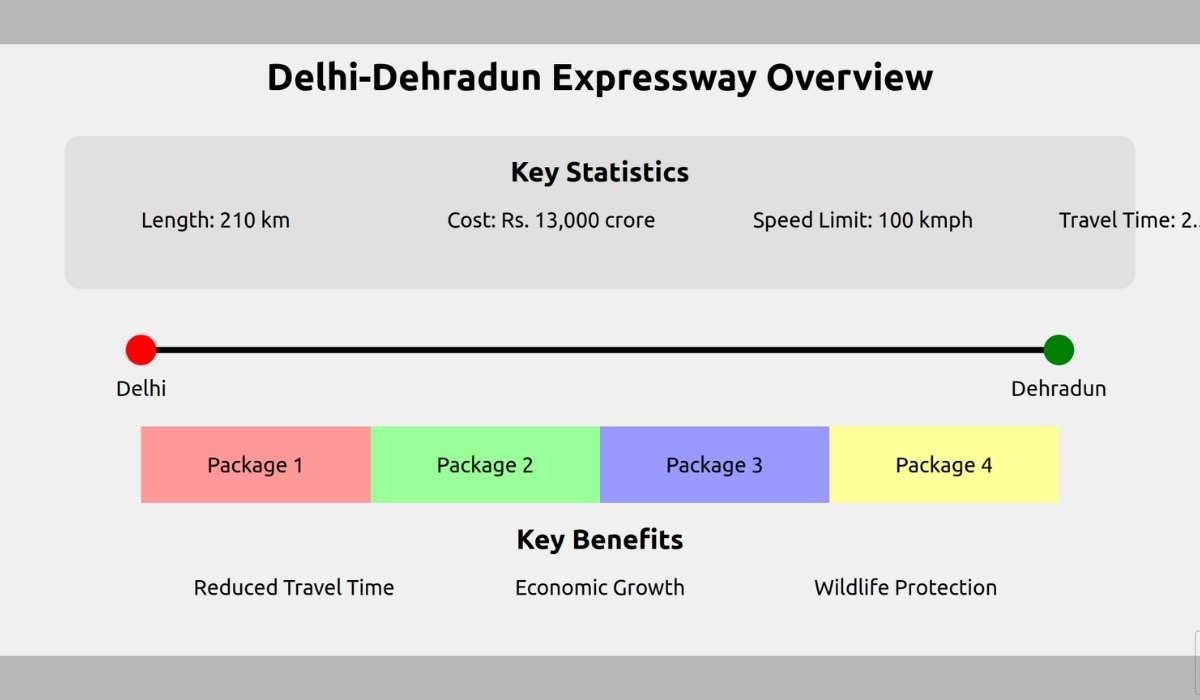Purchasing an affordable home in India offers several advantages, including lower costs, government subsidies, and the opportunity to build equity. However, it also comes with potential drawbacks, such as compromises on location, amenities, and resale value. Careful consideration of both the pros and cons is crucial before making a decision.
As housing prices continue to soar in many parts of India, the concept of affordable housing has gained significant traction. Pros and Cons of Buying an Affordable Home in India is a topic that many aspiring homebuyers are grappling with. The government’s initiatives, such as the Pradhan Mantri Awas Yojana (PMAY), have made affordable housing more accessible, but it’s essential to weigh the advantages and disadvantages before making a decision.
Pros of Buying an Affordable Home in India
Lower Upfront Costs and Monthly Payments
The primary benefit of buying an affordable home is the lower upfront cost and monthly mortgage payments. With housing prices in metropolitan cities often out of reach for many, affordable housing projects offer a more budget-friendly alternative. This can make homeownership a reality for individuals and families with limited financial resources.
In a city like Mumbai, where the average property price can range from ₹1.5 crore to ₹3 crore, an affordable housing unit priced at ₹50 lakhs can be a game-changer for many aspiring homebuyers.
Government Subsidies and Tax Benefits
The Indian government has introduced various schemes and subsidies to promote affordable housing, such as the Credit Linked Subsidy Scheme (CLSS) under PMAY. These subsidies can provide significant financial assistance, reducing the overall cost of the property and making it more accessible to lower-income groups.
Additionally, homebuyers can benefit from tax deductions on interest paid on home loans, further reducing the overall financial burden.
Unlock Your Dream Home Today!
Get personalized real estate insights delivered straight to your inbox.
Opportunity to Build Equity
One of the most significant advantages of buying an affordable home is the opportunity to build equity. As you pay off your mortgage over time, the value of your property is likely to appreciate, allowing you to accumulate wealth and potentially use the equity for future investments or financial goals.
Cons of Buying an Affordable Home in India
Compromises on Location and Amenities
Affordable housing projects are often located in the outskirts or developing areas of cities, which may not be as well-connected or equipped with amenities as more established neighborhoods. This can result in longer commute times and a lack of convenient access to schools, hospitals, and other essential services.
For instance, some affordable housing projects in the National Capital Region (NCR) are located in areas like Greater Noida, which, while more affordable, may require longer travel times to reach workplaces in Delhi or Gurgaon.
Potential for Lower Resale Value
While affordable homes offer a more affordable entry point into the property market, there is a risk that their resale value may not appreciate as much as more premium properties. This can be due to factors such as location, quality of construction, and the overall demand for affordable housing in the area.
Limited Customization Options
Affordable housing projects often have standardized designs and layouts, leaving little room for customization or personalization. This can be a drawback for homebuyers who value the ability to tailor their living spaces to their specific preferences and needs.
Potential Maintenance and Infrastructure Challenges
In some cases, affordable housing projects may face maintenance and infrastructure challenges, particularly if they are located in developing areas. Issues such as poor road connectivity, inadequate water supply, or unreliable power can impact the overall living experience.
FAQs
Can affordable homes be a good investment option?
While affordable homes may not appreciate in value as much as premium properties, they can still be a good investment option, especially for first-time homebuyers. As you build equity over time, the property can serve as a valuable asset and a stepping stone towards more expensive real estate investments in the future.
Are affordable housing projects well-constructed and safe?
Reputable developers and projects approved under government schemes like PMAY adhere to strict quality standards and building regulations. However, it’s essential to research the developer’s track record and inspect the property thoroughly before making a purchase.
Can I avail of a home loan for an affordable housing unit?
Yes, most banks and financial institutions offer home loans for affordable housing projects. Additionally, under schemes like PMAY, you may be eligible for subsidies and lower interest rates, making the loan more affordable.
Are there any restrictions on selling or renting out an affordable home?
Some affordable housing projects may have restrictions on selling or renting out the property within a certain time frame. It’s essential to review the terms and conditions of the specific project before making a purchase.
What should I consider when choosing an affordable housing project?
When selecting an affordable housing project, consider factors such as the developer’s reputation, location, connectivity, amenities, construction quality, and any additional charges or restrictions. It’s also advisable to consult with a real estate professional for guidance.
Conclusion
Buying an affordable home in India can be a smart financial decision for many individuals and families, offering a more accessible path to homeownership. However, it’s crucial to carefully evaluate the pros and cons, considering factors such as location, amenities, resale value, and potential maintenance challenges. By weighing these factors against your specific needs and financial situation, you can make an informed decision that aligns with your long-term goals.
Remember, the decision to purchase a home, whether affordable or premium, is a significant investment and should be approached with careful consideration and due diligence.
affordable housing in india, affordable home purchase, pros and cons of affordable homes, benefits of affordable housing, drawbacks of affordable housing, affordable housing projects, government schemes for affordable housing, affordable housing investments, affordable housing loans, affordable housing locations, affordable housing amenities, affordable housing maintenance
The primary benefits include lower upfront costs and monthly payments, government subsidies, and the opportunity to build equity over time.
The Indian government promotes affordable housing through various schemes, such as the Pradhan Mantri Awas Yojana (PMAY), which offers subsidies and financial assistance to homebuyers.
Yes, as you pay off your mortgage, the value of your property is likely to appreciate, allowing you to build equity that can be used for future investments.
You may face compromises on location, amenities, and potential resale value, as affordable housing projects are often located in developing areas with limited facilities.
Reputable developers and projects approved under government schemes like PMAY adhere to strict quality standards. It's important to research the developer's reputation and inspect the property.
Yes, most banks and financial institutions offer home loans for affordable housing projects, often with lower interest rates and subsidies under schemes like PMAY.
Some affordable housing projects may impose restrictions on selling or renting out the property for a certain period. It's crucial to review the specific terms of the project.
Consider factors such as the developer's reputation, location, connectivity, amenities, construction quality, and any additional charges or restrictions.
Potential drawbacks include compromises on location and amenities, lower resale value, limited customization options, and possible maintenance challenges.
While affordable homes may not appreciate as much as premium properties, they can still be a valuable investment, especially for first-time homebuyers looking to build equity.
The primary benefits include lower upfront costs and monthly payments, government subsidies and tax benefits, and the opportunity to build equity over time.
Yes, the Indian government has introduced various schemes, such as the Pradhan Mantri Awas Yojana (PMAY) and the Credit Linked Subsidy Scheme (CLSS), to promote affordable housing.
Yes, most banks and financial institutions offer home loans for affordable housing projects, and you may also be eligible for subsidies that reduce the overall cost.
Potential drawbacks include compromises on location and amenities, lower resale value, limited customization options, and possible maintenance and infrastructure challenges.
Yes, affordable homes may not appreciate in value as much as premium properties due to factors like location, quality of construction, and demand in the area.
It's important to research the developer's reputation, check if the project is approved under government schemes, and inspect the property thoroughly before purchasing.
Consider factors such as the developer's reputation, location, connectivity, amenities, construction quality, and any restrictions or additional charges associated with the project.
Some affordable housing projects may have restrictions on selling or renting within a certain time frame, so it's essential to review the specific terms and conditions.
Yes, while they may not appreciate as much as premium properties, affordable homes can still be a good investment, especially for first-time homebuyers looking to build equity.
Common challenges include maintenance issues, poor road connectivity, and inadequate infrastructure, which can impact the overall living experience.
The main advantages include lower upfront costs and monthly payments, access to government subsidies and tax benefits, and the opportunity to build equity over time.
Yes, the Indian government has introduced schemes like the Pradhan Mantri Awas Yojana (PMAY) and the Credit Linked Subsidy Scheme (CLSS) to promote affordable housing.
While affordable homes may not appreciate in value as much as premium properties, they can still serve as a valuable asset and a stepping stone for future real estate investments.
Potential drawbacks include compromises on location and amenities, lower resale value, limited customization options, and possible maintenance and infrastructure challenges.
Reputable developers and projects approved under government schemes like PMAY usually adhere to strict quality standards. However, it's important to research the developer and inspect the property.
Yes, most banks and financial institutions offer home loans for affordable housing projects, often with subsidies and lower interest rates under government schemes.
Some affordable housing projects may have restrictions on selling or renting out properties within a certain time frame. It's important to review the specific project's terms and conditions.
Consider the developer's reputation, location, connectivity, amenities, construction quality, and any additional charges or restrictions. Consulting with a real estate professional is also advisable.
Affordable homes may have a lower resale value compared to premium properties due to factors like location, quality of construction, and overall market demand.
Affordable housing projects, especially in developing areas, may face challenges such as poor road connectivity, inadequate water supply, or unreliable power, impacting the overall living experience.
DISCLAIMER
The information provided on this website is for general informational purposes only. While we strive to keep the content up-to-date and accurate, we make no representations or warranties of any kind, express or implied, about the completeness, accuracy, reliability, suitability, or availability of the information, products, services, or related graphics contained on this website.
In no event will we be liable for any loss or damage including without limitation, indirect or consequential loss or damage, or any loss or damage whatsoever arising from loss of data or profits arising out of, or in connection with, the use of this website.
Real Estate Investment Risks
Real estate investments involve significant risks and market volatility. Property values, rental rates, and market conditions can fluctuate. Past performance is not indicative of future results.
Before Making Real Estate Decisions
Before making any real estate decision, we strongly advise you to:
- Conduct thorough due diligence
- Consult with qualified legal, financial, and real estate professionals
- Carefully review all relevant documents and contracts
- Consider your personal financial situation and investment goals
This website does not provide legal, financial, or investment advice. All content is for informational purposes only and should not be construed as professional advice or recommendations.
By using this website, you acknowledge and agree to these terms. We reserve the right to modify this disclaimer at any time without notice.






